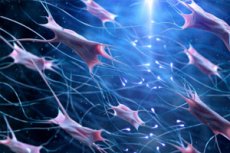New publications
Neural stem cell transplant shows potential for myelin repair in multiple sclerosis
Last reviewed: 15.07.2025

All iLive content is medically reviewed or fact checked to ensure as much factual accuracy as possible.
We have strict sourcing guidelines and only link to reputable media sites, academic research institutions and, whenever possible, medically peer reviewed studies. Note that the numbers in parentheses ([1], [2], etc.) are clickable links to these studies.
If you feel that any of our content is inaccurate, out-of-date, or otherwise questionable, please select it and press Ctrl + Enter.

Cambridge scientists have brought treatment for multiple sclerosis closer with neural stem cell transplants.
A new study led by scientists at the University of Cambridge has shed light on how neural stem cell transplants can help repair myelin in the central nervous system. The findings suggest that neural stem cell-based therapies have potential as a possible treatment for chronic demyelinating diseases, particularly progressive multiple sclerosis (MS).
Multiple sclerosis (MS) is an autoimmune disease in which the immune system mistakenly attacks the central nervous system, destroying myelin, the protective sheath around nerve fibers. This damage is one of the leading causes of neurological disability in young adults.
In the early stages of MS, some cells can partially rebuild this myelin, but this regenerative capacity declines sharply in the late, chronically progressive stage of the disease. Loss of this capacity leads to further neuronal damage and increasing disability in people with progressive MS.
While current treatments help manage symptoms, they do not stop or reverse damage and neurodegeneration, highlighting the need to better understand the progression of MS and explore how stem cell technologies can help with treatment.
Revolutionary research results
The work, published in the journal Brain and led by Dr Luca Peruzzotti-Giametti from the University of Cambridge, provides important insights into the potential of neural stem cell transplantation in progressive MS.
For the first time, a study has shown that induced neural stem cells (iNSCs) transplanted into a mouse model of MS can mature into oligodendrocytes, the cells responsible for myelin formation. Moreover, the study provides data supporting the safety of human iNSC transplantation.
“Our data provide critical evidence that induced neural stem cell transplants can effectively transform into myelin-producing cells within the damaged central nervous system, pointing to a potential new treatment for progressive MS,”
said Dr. Luca Peruzzotti-Giametti, first author of the study.
The team is also exploring how such therapies might impact neuroprotective and anti-inflammatory processes, with the aim of slowing brain atrophy and MS progression.
"We have shown that stem cells can be used to create new myelin and target diseased areas. This is an important step forward in the development of targeted therapies for chronic demyelinating diseases,"
added Professor Stefano Pluchino, senior author of the study.
The Future of Research and the RESTORE Project
The discovery has important implications for future work and the development of clinical trials. One of the leading groups working on innovative stem cell therapies for progressive MS is the RESTORE consortium, which brings together scientists from Europe and the US, including Professor Pluchino and Dr Peruzzotti-Giametti from Cambridge.
RESTORE, supported by the International Progressive MS Alliance, is working to conduct a breakthrough clinical trial of a neural stem cell therapy for progressive MS. Their approach places a strong emphasis on patient engagement to ensure their needs and views are taken into account.
“These animal results are incredibly important. They help to understand how neural stem cells could one day form the basis of desperately needed myelin repair techniques. We are proud to have supported this research and hope that it will bring us one step closer to stopping disease progression for everyone with MS,”
said Dr Catherine Godbold, MS Society’s scientific communications manager.
